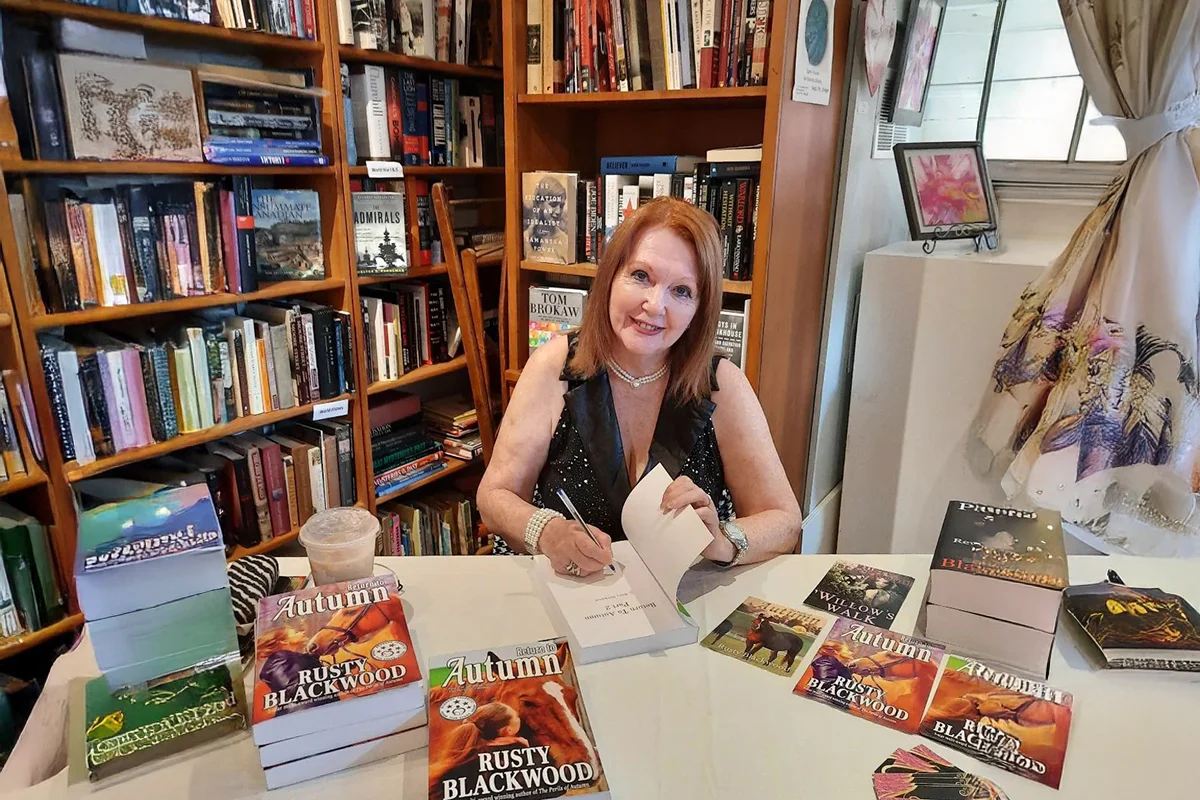PHOTO: Matthew Hughes, renowned for his masterful storytelling and unique blend of fantasy, crime, and space opera.
Exploring Morally Complex Characters and Organic Storytelling in Genre-Spanning Works
Matthew Hughes shares insights into his intuitive writing process, influences from Jack Vance, and his passion for morally complex characters, blending fantasy, crime, and space opera with sharp dialogue and vivid world-building.
Matthew Hughes Blends Fantasy, Crime, and Space Opera Into Compelling Speculative FictionHughes has carved out a distinctive place in speculative fiction with a body of work that spans fantasy, crime, and space opera. With 24 novels and over 100 short stories to his name, Hughes’s storytelling combines rich world-building, complex characters, and a sharp wit that keeps readers both intellectually engaged and thoroughly entertained. His latest novels, Margolyam and Henchmen, highlight his talent for blending intricate plots with morally ambiguous antiheroes, securing his reputation as one of the genre’s most original voices.
Hughes’s writing career is as diverse as his stories. Before becoming a full-time novelist, he wrote speeches for Canadian government ministers and travelled extensively as an itinerant housesitter, experiences that have deeply influenced the authenticity and texture of his fictional worlds. His ability to capture dialogue that feels both natural and finely crafted stems from his decades of writing for real-life voices, while his keen understanding of narrative structure was sharpened by years spent reading widely and working as a script reader.
Matthew Hughes is a master storyteller whose originality, wit, and richly crafted worlds elevate speculative fiction to extraordinary heights.
A lifelong fan of Jack Vance, Hughes credits the legendary author’s work for inspiring his early love of speculative fiction. “I read ‘The Dragon Masters’ in Galaxy Magazine when I was thirteen,” Hughes recalls. “What caught me was the coolness of the mood. That resonates with me still.” This influence can be felt throughout Hughes’s novels, where the atmosphere and tone are as important as plot and character.
Morally complex characters frequently populate Hughes’s stories, a reflection of his self-described roots as a crime writer. “A minor streak of criminality runs through my extended family, so when characters emerge, they tend to be on that side,” he says. Growing up in the 1960s, Hughes was also shaped by the era’s fascination with antiheroes, a fascination that continues to colour his work.
Despite his genre-spanning output, Hughes remains an intuitive, “pantser” writer—meaning he rarely outlines or plans extensively before beginning a novel. “I start with a character, give them a problem, and see how they react,” he explains. “Other characters come into the action with their own agendas, and I see where it goes. It all happens organically.” This approach allows Hughes’s stories to unfold in surprising ways, even to himself. He shares that in his current space opera project, he is still uncertain about how it will end, even though he’s well into writing it.
Hughes’s extensive travels have also enriched his world-building, teaching him the importance of small cultural details that bring settings and characters to life. For example, he notes how social customs vary from country to country—a difference as simple as greeting a stranger in an Italian dentist’s waiting room versus addressing a waiter in France—which he incorporates into his writing to add depth and realism.
Balancing humour with narrative tension comes naturally to Hughes, who credits his characters with a shared sense of irony inherited from him. This is evident in Henchmen, where classic fantasy elements mix seamlessly with a witty, self-aware tone that keeps readers hooked.
Asked about his ongoing drive to innovate within the speculative fiction genre, Hughes modestly describes himself as “a decidedly old-fashioned kind of author,” writing stories that would have fit in the pulps and paperbacks of decades ago. Yet his work continues to break boundaries by combining genres and pushing the expectations of readers.
For aspiring writers, Hughes offers practical advice grounded in his own experience. “Don’t write plots and try to slot characters into them. You’ll end up with a lame puppet show,” he warns. Instead, he encourages writers to let story emerge naturally from character, and plot evolve from story. As an example, Hughes points to his recent short story “What’s in a Name?” published in Fantasy Magazine, a retelling of a classic fairy tale that becomes an entirely new narrative by shifting the point of view.
Matthew Hughes remains a shining example of how passion, originality, and a deep understanding of human nature can produce stories that transcend genres and generations. His work continues to captivate readers who crave speculative fiction rich with moral complexity, wit, and adventure.
This article was adapted from an interview with Matthew Hughes in the latest issue of Reader’s House.











